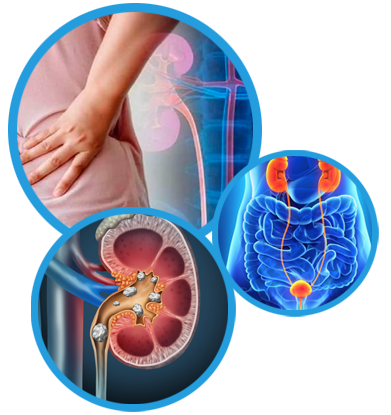
What is Kidney Stone (Urinary Stones)
Kidney stones, also called renal calculi, are hard deposits that form in the kidneys from minerals and salts in urine. They can be small like grains or bigger with sharp edges. Anyone can get kidney stones, but things like diet, family history, and not drinking enough water can make it more likely. Kidney stones can cause severe pain, often said to be one of the worst pains a person can feel. Knowing the causes, signs, and treatment options is important to manage them. If you’re dealing with kidney stones, it’s important to find the best kidney doctor in Siliguri and Bhagalpur to get proper treatment and care.
1. Symptoms of Kidney stone
2. What causes Kidney stones?
3. How is kidney stone diagnosed?
4. How Can I Prevent Future Kidney Stones?
Kidney stones are a common and painful condition that can affect anyone, although certain risk factors may increase the likelihood of developing them. While small kidney stones may pass on their own with adequate hydration and pain management, larger stones or those causing complications may require medical intervention, such as lithotripsy (shock wave therapy), ureteroscopy, or surgical removal. Prevention strategies, including staying hydrated, adopting a balanced diet, and managing underlying medical conditions, can help reduce the risk of kidney stone formation. Early detection and prompt treatment are essential for preventing complications and relieving symptoms associated with kidney stones.
Dr. Siddharth Jai SIngh
MBBS, MS (General Surgery), MCh (Urology)
Urology & Uro-Oncology
10+ Years of Experience
Current News & Event
Free Health camp
This camp will take place this Sunday, April 14, 2024 from 9 am to 1 pm.







